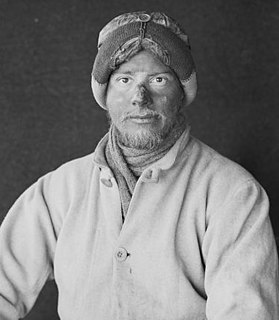A Quote by Thomas Jefferson
In truth, politeness is artificial good humor, it covers the natural want of it, and ends by rendering habitual a substitute nearly equivalent to the real virtue. It is the practice of sacrificing to those whom we meet in society, all the little inconveniences and preferences which will gratify them, and deprive us of nothing worth a moment's consideration; it is the giving a pleasing and flattering turn to our expressions, which will conciliate others, and make them pleased with us as well as themselves. How cheap a price for the good will of another!
Quote Topics
Another
Artificial
Cheap
Consideration
Covers
Deprive
Ends
Equivalent
Expressions
Flattering
Giving
Good
Good Humor
Good Will
Habitual
How
Humor
Little
Make
Meet
Moment
Natural
Nearly
Nothing
Others
Our
Pleased
Pleasing
Politeness
Practice
Preferences
Price
Real
Rendering
Society
Substitute
Them
Themselves
Those
Truth
Turn
Us
Virtue
Want
Well
Which
Whom
Will
Worth
Related Quotes
Some will tell you that you are mad, and nearly all will say, 'What is the use?' For we are a nation of shopkeepers, and no shopkeeper will look at research which will not promise him a financial return within a year. And so you will sledge nearly alone, but those with whom you sledge will not be shopkeepers: that is worth a good deal. If you march your Winter Journeys you will have your reward, so long as all you want is a penguin's egg.
Whether this will prove a blessing or a curse, will depend upon the use our people will make of the blessings which a gracious God hath bestowed on us. If they are wise, they will be great and happy. If they are of a contrary character, they will be miserable. Righteousness alone can exalt them as a nation. Reader! Whoever thou art, remember this: and in thy sphere practice virtue thyself, an encourage it in others.
We will fight anyone who wishes to impose a totalitarian system upon a free society, and we will always prevail. But we will not do so with a fear-stricken administration which seeks to deprive us of freedoms in the name of 'defending' us from the terrorists, who also seek to deprive us of our freedoms.
Fruits are always of the same nature with the seeds and roots from which they come, and trees are known by the fruits they bear: as a man begets a man, and a beast a beast, that society of men which constitutes a government upon the foundation of justice, virtue, and the common good, will always have men to promote those ends; and that which intends the advancement of one man's desire and vanity, will abound in those that will foment them.
No man is much regarded by the rest of the world. He that considers how little he dwells upon the condition of others, will learn how little the attention of others is attracted by himself. While we see multitudes passing before us, of whom perhaps not one appears to deserve our notice or excites our sympathy, we should remember, that we likewise are lost in the same throng, that the eye which happens to glance upon us is turned in a moment on him that follows us, and that the utmost which we can reasonably hope or fear is to fill a vacant hour with prattle, and be forgotten.
Will they attack us? Yes. Will they smear our backgrounds and distort our records? Undoubtedly. Will they lie about us, harass our families, namecall to try to intimidate us? They will. There's nothing safe about it. But is it worth it? Well, let me ask you. Is freedom worth it? Is America worth it?
There's nothing wrong with celebrating the good things in our past. But memories, like witnesses, do not always tell the truth, the whole truth, and nothing but the truth. We need to cross-examine them, recognizing and accepting the inconsistencies and gaps in those that make us proud and happy as well as those that cause us pain.
Genuine love is rarely an emotional space where needs are instantly gratified. To know love we have to invest time and commitment...'dreaming that love will save us, solve all our problems or provide a steady state of bliss or security only keeps us stuck in wishful fantasy, undermining the real power of the love -- which is to transform us.' Many people want love to function like a drug, giving them an immediate and sustained high. They want to do nothing, just passively receive the good feeling.
Artificiality is one curse that will drop away the moment we kneel at Jesus' feet and surrender ourselves to His meekness. Then we will not care what people think of us so long as God is pleased. Then what we are will be everything; what we appear will take its place far down the scale of interest for us. Apart from sin we have nothing of which to be ashamed. Only an evil desire to shine makes us want to appear other than we are.
It is the Spirit of Christ in us that will draw satan's fire. The people of the world will not much care what we believe and they will stare vacantly at our religious forms, but there is one thing they will never forgive us-the presence of God's Spirit in our hearts. They may not know the cause of that strange feeling of antagonism which rises within them, but it will be nonetheless real and dangerous. satan will never cease to make war on the Man-child, and the soul in which dwells the Spirit of Christ will continue to be the target for his attacks.
Antiphon, as another man gets pleasure from a good horse, or a dog, or a bird, I get even more pleasure from good friends. And if I have something good, I teach it to them, and I introduce them to others who will be useful to them with respect to virtue. And together with my friends I go through the treasures of wise men of old which they left behind written in books, and we peruse them. If we see something good, we pick it out and hold it to be a great profit, if we are able to prove useful to one another.
































